Marina Stavniychuk: The UNBA is a professional organization, not a monopoly
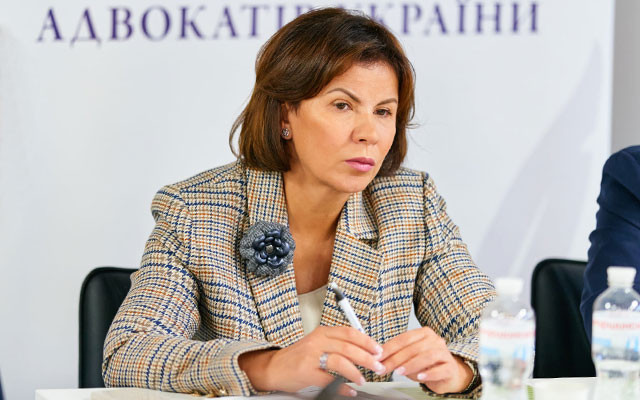
A unitary state requires uniform standards for access to the profession and disciplinary responsibility, which is why the Ukrainian National Bar Association acts as a professional organization. Accusations of monopoly are false, because public associations cannot replace professional self-government.
These arguments were voiced in the studio of Kyiv FM radio station during a discussion on the reform of advocacy in Ukraine, existing problems, and conflicts. The expert invited was the chairman of the UNBA Committee on the rule of law, member of the Venice Commission in 2009-2013, Marina Stavniychuk, according to the publication LIGA ZAKON.
She recalled that the current status of advocacy was the result of long stages of reform. At the beginning of independence, it was effectively subordinate to the Ministry of Justice, as in a number of other countries. After Ukraine joined the Council of Europe, a requirement was made to create an independent professional advocacy. This led to the adoption of a number of laws that for the first time enshrined self-government and new rules for access to the profession. The modern model was finally introduced by the 2012 Law «On the advocacy and the practice of law», which was based on European standards. In 2019, the Constitutional Court considered a case concerning the so-called bar monopoly and ruled that the mandatory participation of an advocate in court applies only to criminal proceedings. It was then that the discussion about the status of the UNBA intensified.
«The Law «On the advocacy and the practice of law» refers to a professional organization. Undoubtedly, advocates have the right to be and are members of many public organizations. For example, the Ukrainian Bar Association, where a significant number of members are Ukrainian advocates. But I would not say that this is an advocate monopoly», - explained Marina Stavniychuk.
She emphasized that a professional organization performs unified functions necessary for the country. «A professional organization provides access to the profession and uniform standards based on the principle of the rule of law. It also has the ability to use a unified mechanism for bringing people to justice throughout the country through single qualification and disciplinary commissions», - said the advocate.
She stressed that in a unitary state, a multiplicity of associations would be destructive. «Many would like to create different organizations, introduce different standards, different approaches. But excuse me: the profession of advocate in a state, especially a unitary state, must have uniform principles and foundations, uniform mechanisms for access to the profession, uniform mechanisms for activity, opportunities, capabilities for advocate practice, and uniform mechanisms for accountability if an advocate commits a disciplinary violation», - said Marina Stavniychuk.
«Many people dream of holding leadership positions in such a huge cohort of lawyers. No question: there will be elections, compete, propose candidates for various positions in the bar self-government, win in accordance with the procedures provided for by law», - she concluded.
The advocate also recalled that in March 2025, the Council of Europe adopted the Convention on the Protection of the Legal Profession. The document explicitly states that bar associations are professional organizations. And the Ukrainian model, established back in 2012, fully complies with these standards.
Popular news
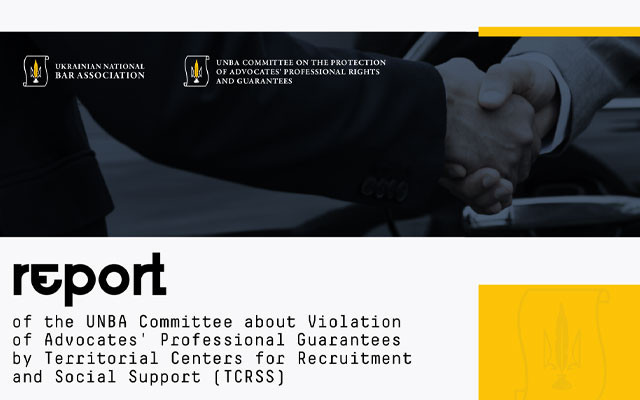
Guarantees of the practice of law
The UNBA presented a report on violations of advocates' rights in the TCC
The Committee for the protection of advocate's rights and guarantees of legal practice of the UNBA has prepared a consolidated report on violations of advocate's professional rights and guarantees of legal practice by territorial recruitment and social support centers for the period from 2022 to the first half of 2025.
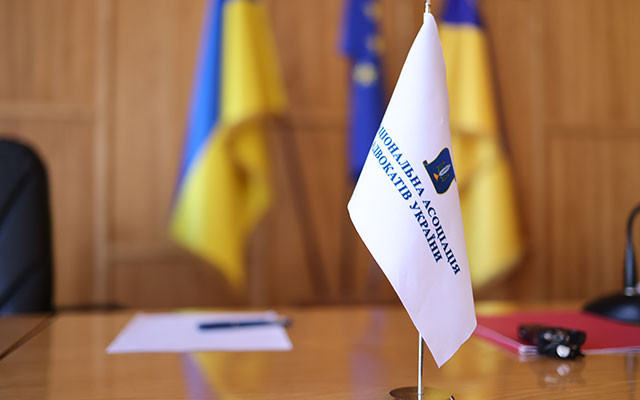
Self-government
Statement by the UNBA Committee regarding manipulative journalistic material
Statement by the UNBA Committee on information policy and interaction with the media regarding manipulative journalistic material aimed at discrediting the advocacy institution.
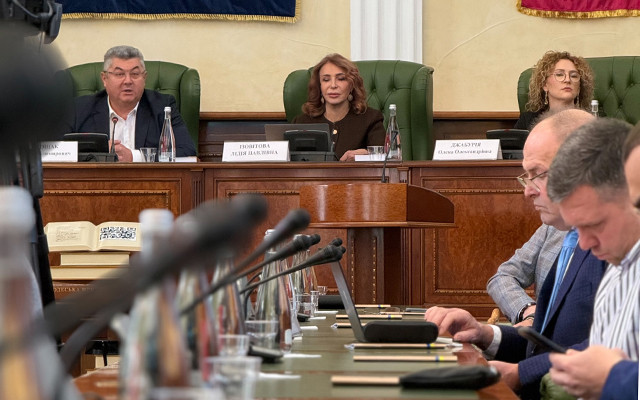
Guarantees of the practice of law
L. Izovitova: today advocacy maintains its independence and fights for guarantees for the profession
The Ukrainian advocacy remains an independent, constitutionally recognized institution of justice, which, in the conditions of war, has not only retained its subjectivity, but also consistently fights for guarantees to protect the profession.
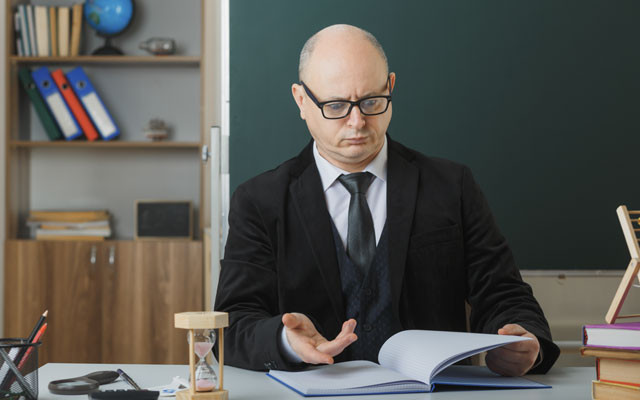
Access to the profession
For candidates for the advocate: BCU has reminded them of the rules for crediting teaching experience
For the purposes of admission to the qualification exam, a candidate's work in scientific and teaching positions may be counted as experience in the field of law only if the position requires legal education.
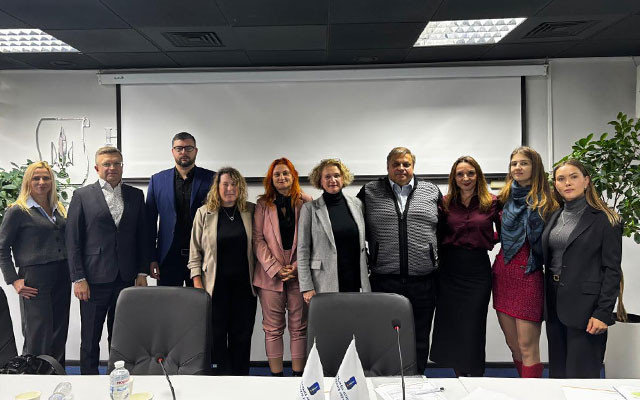
Discussion
Urban Planning Code: what should the new rules for rebuilding Ukraine be?
Does Ukraine need separate codification in the field of urban planning, which model of law to choose, and how to ensure a balance between the interests of the state, communities, businesses, and citizens in the context of post-war reconstruction?
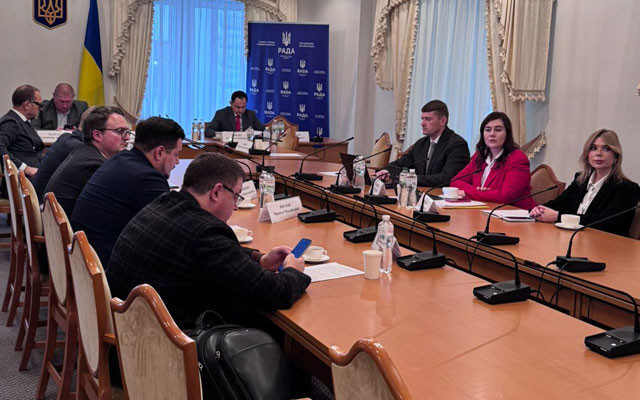
Guarantees of the practice of law
The Verkhovna Rada took another step towards ratifying the Convention on the protection of the profession of advocate
On November 5, the Verkhovna Rada held a working meeting dedicated to the translation of the Council of Europe Convention on the protection of the profession of advocate for its subsequent signing and ratification. The issue was initiated by the Ministry of Foreign Affairs, which drew attention to the key term «lawyer» in the international treaty.
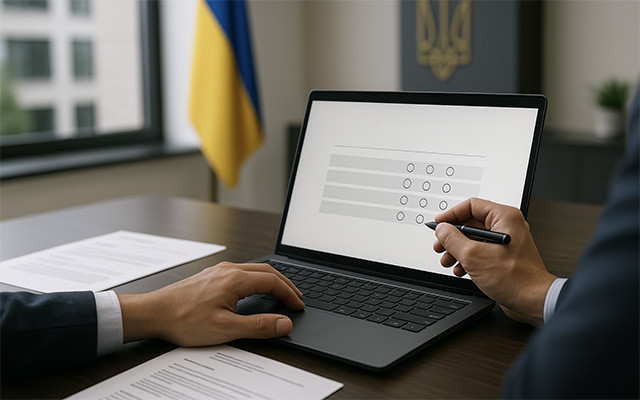
Interaction
NACB is looking for corruption risks in its activities. Advocates are asked to help
The National Anti-Corruption Bureau of Ukraine has launched a survey aimed at gathering information to identify corruption risks in the activities of the National Bureau and prepare an Anti-Corruption Program for 2026–2028.
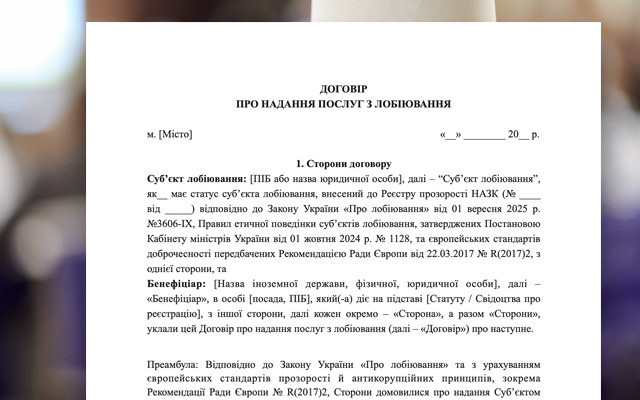
Interaction
Agreement on the provision of lobbying services: a template for advocates has been developed by the UNBA
The Ukrainian National Bar Association has prepared a model agreement for the provision of lobbying services that complies with the requirements of the relevant law and takes into account the specific features of such activities carried out by persons providing legal assistance.
Publications

Censor.net Protecting advocates – protecting justice: addressing concerns about the new law

Ihor Kolesnykov A BRIEF SUMMARY REGARDING THE APPLICATION OF THE ORDER ON EXTENDED CONFISCATION IN LATVIA REGARDING FINANCIAL ASSETS OF…

Valentyn Gvozdiy WORKING IN A WAR ZONE

Lydia Izovitova Formula of perfection

Sergiy Vylkov Our judicial system is so built that courts do not trust advocates

Iryna Vasylyk Advocacy in the proclamation of Independence of Ukraine

Oleksandr DULSKY When we cross the border of the Supreme Anti-Corruption Court, we get into another department of the National Anti-Corruption…

Vadym Krasnyk The UNBA will work, and all obstacles and restrictions are only temporary inconveniences
